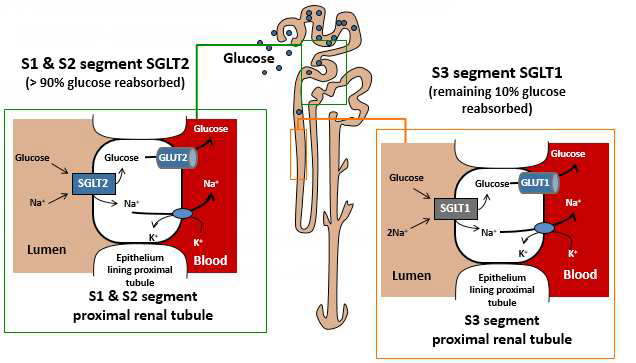The role of sodium-glucose transport Protein-2 (Sglt-2) inhibitor on albuminuria and the progressive of diabetic kidney disease
DOI:
https://doi.org/10.31943/gw.v14i2.466Keywords:
Type 2 diabetes mellitus, Albuminuria, SGLT-2 inhibitorsAbstract
Diabetes mellitus (DM) is a non-communicable disease with an increasing incidence every year. Sodium-Glucose Transport Protein-2 (SGLT-2) inhibitors are a class of insulin-independent antidiabetic drugs that can reduce the incidence of kidney function damage. This study aimed to determine the role of SGLT-2 inhibitor therapy in preventing the incidence of albuminuria so that it can be used as a consideration for treatment applications in type 2 DM patients. This study used the literature review method. Stages in data collection using the PRISMA method from several Journal Databases based on inclusion and exclusion criteria. SGLT-2 inhibitors are antidiabetic drugs that can help glycemic control with a good safety profile. The effectiveness of SGLT2 inhibitor class drugs has been proven to reduce the occurrence of albuminuria and impact the progression of diabetic kidney disease. Further research can be carried out to prove the benefits of this modality comprehensively.
Downloads

Downloads
Published
How to Cite
Issue
Section
License
Copyright (c) 2023 Ni Wayan Mirah Wilayadi, I Gde Raka Widiana

This work is licensed under a Creative Commons Attribution 4.0 International License.
The use of non-commercial articles will be governed by the Creative Commons Attribution license as currently approved at http://creativecommons.org/licenses/by/4.0/. This license allows users to (1) Share (copy and redistribute the material in any medium) or format; (2) Adapt (remix, transform, and build upon the material), for any purpose, even commercially.









